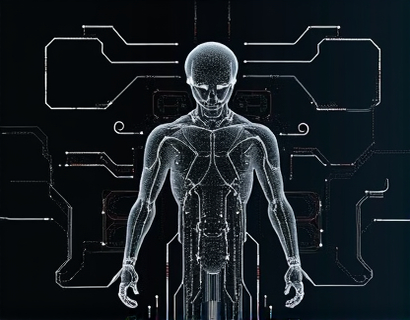AI Certification Dynamics: Transforming Skill Validation and Career Advancement in the Digital Age
The digital age has ushered in a new era of technological advancements, particularly in artificial intelligence (AI), which continues to reshape industries and job markets worldwide. As AI technologies become increasingly integral to various sectors, the demand for professionals skilled in AI has surged. In this context, AI certification has emerged as a pivotal tool for validating skills and knowledge, thereby enhancing career prospects and educational credibility. This article delves into the dynamics of AI certification, exploring how it is transforming the way individuals and organizations approach skill validation and career development.
The traditional methods of skill validation, such as degrees and general work experience, are being complemented by specialized AI certifications. These certifications are designed to assess and validate specific skills and knowledge areas within the broad field of AI. By completing targeted tasks and educational milestones, individuals can earn credentials that are recognized across the industry. This shift towards task-based and educational milestone-driven certifications offers a more nuanced and accurate reflection of a professional's capabilities in AI.
One of the key benefits of AI certification is the enhancement of professional credibility. In a field where technology evolves rapidly, having a recognized certification can set professionals apart from their peers. It demonstrates a commitment to staying updated with the latest developments and a level of expertise that is hard to fake. Employers increasingly look for candidates with relevant certifications as a quick way to gauge their potential to contribute to the team and handle complex AI-related tasks.
The process of obtaining an AI certification typically involves a series of assessments and projects that test the candidate's understanding and application of AI concepts. These assessments are designed to be practical and relevant, ensuring that the certified individual possesses the necessary skills to perform effectively in real-world scenarios. The tasks may range from theoretical questions to hands-on projects, providing a comprehensive evaluation of the candidate's abilities.
Moreover, AI certifications are not one-size-fits-all. There is a growing trend towards offering a variety of certificates that cater to different levels of expertise and specific areas of interest within AI. For instance, some certifications focus on machine learning, while others might cover natural language processing or computer vision. This specialization allows professionals to tailor their education and certification to their career goals and the demands of their industry.
The impact of AI certification on career advancement is significant. With a certification, professionals can open doors to new opportunities that were previously inaccessible. Many companies now require or prefer candidates with AI certifications for roles that involve AI development, data analysis, and other tech-driven positions. This preference is driven by the assurance that certified individuals have undergone a rigorous evaluation process and possess the required skills to excel in their roles.
For students and tech professionals seeking to enter the AI field, obtaining an AI certification can be a strategic move. It not only validates their current skills but also signals to potential employers that they are proactive and committed to continuous learning. In an industry where skills can become outdated quickly, certifications serve as a marker of ongoing education and adaptability.
The process of earning an AI certification is designed to be both challenging and rewarding. Candidates must engage deeply with the material, applying theoretical knowledge to practical tasks. This hands-on approach ensures that the learning experience is comprehensive and that the skills acquired are directly applicable to real-world situations. The certification process often includes peer reviews and feedback, further enhancing the learning experience and providing valuable insights for improvement.
In addition to individual benefits, AI certifications contribute to the broader goal of workforce development. As organizations invest in AI technologies, there is a growing need for a skilled workforce capable of implementing and managing these systems. AI certifications help bridge the gap between the available job market and the skills required by employers. By standardizing skill validation, certifications make it easier for organizations to identify and recruit talent with the specific expertise they need.
The tech industry is not the only sector benefiting from AI certifications. As AI permeates various industries, from healthcare to finance, the demand for AI-savvy professionals is increasing across the board. Certifications provide a common language and set of standards that professionals from different backgrounds can use to demonstrate their AI competencies. This interoperability is crucial for fostering collaboration and innovation across disciplines.
Furthermore, AI certifications are becoming a key factor in lifelong learning and career progression. The field of AI is constantly evolving, with new algorithms, tools, and applications emerging regularly. Certifications encourage professionals to engage in continuous learning, keeping their skills up-to-date and relevant. This commitment to lifelong learning not only benefits the individual but also contributes to the overall advancement of the industry.
The recognition of AI certifications is growing globally, with many countries and organizations acknowledging their value. Professional bodies and industry associations are increasingly endorsing AI certifications, adding them to their lists of recognized qualifications. This endorsement further legitimizes certifications and enhances their impact on career advancement.
For organizations, supporting their employees in obtaining AI certifications can be a strategic investment. It demonstrates a commitment to employee development and can lead to a more skilled and adaptable workforce. Companies that prioritize AI certifications are better positioned to innovate and stay competitive in a rapidly changing market. The collective skill level of the workforce directly impacts an organization's ability to leverage AI technologies effectively.
In conclusion, AI certifications play a crucial role in the digital age by providing a robust mechanism for skill validation and career advancement. They offer a way to demonstrate expertise, enhance professional credibility, and stay current with the latest AI trends. As the field continues to evolve, the importance of these certifications is likely to grow, making them an essential component of career development in the tech industry.










































